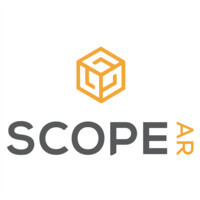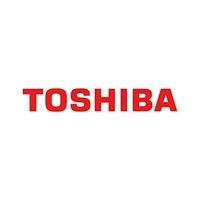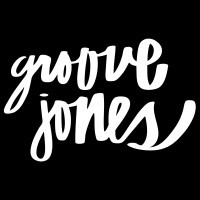Description

rooom

Scope AR
Comprehensive Overview: rooom vs Scope AR
Rooom and Scope AR are both companies in the augmented reality (AR) space but have distinct focuses and product offerings. Here's a comprehensive overview of each:
a) Primary Functions and Target Markets
Rooom:
- Primary Functions: Rooom is a platform that focuses on providing 3D virtual environment solutions. It enables businesses and organizations to create interactive 3D models, virtual events, and immersive experiences that can be accessed via the web without needing any app downloads. Rooom offers solutions for 3D product visualization, virtual showrooms, and interactive exhibitions.
- Target Markets: Rooom primarily targets sectors such as events and exhibitions, retail, marketing, and education. It is ideal for companies looking to enhance customer engagement through virtual experiences and digital visualization.
Scope AR:
- Primary Functions: Scope AR specializes in providing augmented reality solutions for remote assistance and real-time work instruction. Their main product, WorkLink, allows users to implement AR for guided tasks, remote support, and technical training through a hands-free, visual interface.
- Target Markets: Scope AR focuses on enterprise clients, especially in industries such as manufacturing, aerospace, automotive, and defense. The solution is designed to enhance operational efficiency and reduce downtime by providing workers with immediate access to expert knowledge or guidance without geographical constraints.
b) Market Share and User Base
- Market Share: Both companies operate in niche segments of the broader AR market, and while they have made significant strides within their specific domains, they do not hold substantial market shares like some of the major players in AR technology.
- User Base: These companies cater to business and enterprise users rather than individual consumers. Rooom's users are primarily businesses in retail and events looking to create immersive customer experiences. Scope AR's users are enterprise teams requiring enhanced work instruction and remote assistance, often in technical and industrial environments.
c) Key Differentiating Factors
Rooom:
- 3D Virtualization Focus: Rooom is heavily concentrated on 3D content creation for virtual showrooms and events, making it a go-to solution for businesses looking to create highly interactive and visually engaging digital environments.
- Web-Based Platforms: Unlike many AR applications that require downloads, Rooom focuses on delivering these experiences directly via web browsers, enhancing accessibility and ease of use.
- Event and Exhibition Focus: Rooom is uniquely positioned to support businesses in creating virtual events which are becoming increasingly relevant in the era of digital transformation.
Scope AR:
- Real-Time AR Assistance: Scope AR excels in providing real-time augmented reality solutions for remote assistance, allowing experts to guide workers through complex tasks even when miles apart.
- Enterprise and Industrial Use Case: The company’s solutions are engineered for technical fields with a focus on reducing operational inefficiencies, and training costs, and minimizing downtime.
- Integration with Wearable Devices: Scope AR's platform is designed to be used on AR glasses and other wearable tech, providing a hands-free experience especially critical in industrial settings.
In summary, both Rooom and Scope AR are strong players within their specific AR niches. Rooom stands out for virtual experiences and 3D visualization suitable for the events and retail sectors, while Scope AR differentiates itself with real-time, hands-free AR solutions targeting industrial enterprises.
Contact Info

Year founded :
Not Available
Not Available
Not Available
Not Available
Not Available

Year founded :
2010
+1 855-207-2673
Not Available
United States
http://www.linkedin.com/company/scopear
Feature Similarity Breakdown: rooom, Scope AR
As of my last update, both rooom and Scope AR are companies offering augmented reality (AR) solutions, but they focus on slightly different areas within the AR industry. Here's a breakdown of their feature similarities and differences:
a) Core Features in Common
-
Augmented Reality Experiences:
- Both rooom and Scope AR provide platforms for creating and delivering AR experiences. This core functionality involves overlaying digital content onto the real world through a device's camera.
-
Cross-Platform Support:
- Typically support multiple devices, such as smartphones, tablets, and AR headsets, allowing users to access AR content across various platforms.
-
3D Model Handling:
- Capable of importing and manipulating 3D models to create immersive experiences. Users can often interact with and manipulate 3D objects within the AR environment.
-
Collaboration Tools:
- Both platforms offer features that facilitate collaboration, allowing multiple users to engage with AR content simultaneously. This can be useful in industries like training, where collaborative learning is beneficial.
b) User Interface Comparison
-
rooom:
- rooom’s interface tends to be web-based with a focus on accessibility and ease of use. It often features drag-and-drop functionalities, which are user-friendly for individuals who may not have a technical background.
-
Scope AR:
- Focuses on user interfaces that are specific to enterprise use cases. Scope AR provides tools that are tailored for field service, remote assistance, and industrial applications, often integrating with existing enterprise systems. Their UI might be more complex and feature-rich, catering to professional environments.
c) Unique Features
-
rooom:
- Event and Marketing Focus: rooom has a strong portfolio in creating AR for virtual events and marketing purposes. They provide tools that help companies integrate AR into exhibitions, product launches, and sales campaigns.
- Virtual Spaces: They offer not just individual AR experiences but entire virtual environments where users can host and attend events.
-
Scope AR:
- Remote Assistance: Known for its WorkLink platform, Scope AR specializes in real-time AR remote assistance. This feature is particularly beneficial for industries that require hands-on support where experts can provide guidance through AR annotations.
- Enterprise Integration: Scope AR focuses heavily on integration with existing business systems, allowing for seamless incorporation of AR technology into industrial workflows.
- Data Integration and Analytics: Scope AR often provides deeper analytics and data collection tools to help businesses understand usage patterns and improve processes.
In summary, while both companies provide AR solutions with similar fundamental capabilities, the differences lie in their target audiences and specialized features. rooom targets broader applications in marketing and events, while Scope AR is heavily geared towards enterprise solutions and industrial applications. Their interfaces reflect these target markets, with rooom being more user-friendly for non-technical users and Scope AR being richer in features for professional use.
Features

Project Management
Collaboration Tools
Customization Options

Data and Analytics
Device Flexibility
Remote Assistance
Augmented Reality Work Instructions
Best Fit Use Cases: rooom, Scope AR
a) For what types of businesses or projects is rooom the best choice?
rooom is a platform primarily designed for creating and managing immersive 3D and augmented reality (AR) experiences. It is particularly well-suited for businesses and projects that prioritize virtual events, digital marketing, and interactive customer engagement. The best fit use cases for rooom include:
-
Virtual Events and Exhibitions: Companies looking to host virtual trade shows, conferences, or exhibitions can leverage rooom to create engaging and interactive experiences for attendees. With features that support 3D environments and AR integration, businesses can enhance user engagement.
-
E-commerce and Retail: Retailers that want to offer customers a more immersive shopping experience can use rooom to create 3D models of products and virtual showrooms, helping to increase customer interaction and reduce product returns.
-
Real Estate: Real estate agencies and developers can use rooom for creating virtual tours of properties, offering potential buyers an interactive way to explore listings.
-
Marketing and Branding: Companies focused on marketing initiatives can use rooom to craft AR-enhanced campaigns that capture consumer attention and create memorable brand experiences.
b) In what scenarios would Scope AR be the preferred option?
Scope AR specializes in AR solutions for industrial and enterprise applications, making it ideal for scenarios where operational efficiency and technical training are the focus. Preferred use cases include:
-
Field Service and Maintenance: Companies involved in heavy industries, manufacturing, or utilities can benefit from Scope AR’s capabilities to provide real-time, remote assistance to field workers, streamlining troubleshooting and repairs.
-
Training and Education: Organizations that require technical training for complex machinery or systems can use Scope AR to create step-by-step AR instructions, enhancing learning and reducing training time.
-
Manufacturing: For manufacturing companies, Scope AR provides tools to improve productivity by overlaying digital information on physical equipment, helping workers perform tasks with higher accuracy.
-
Aerospace and Defense: In these sectors, Scope AR’s tools can be used for maintenance, repair, and overhaul (MRO) processes, ensuring that technicians have detailed visual guidance to maintain safety standards.
d) How do these products cater to different industry verticals or company sizes?
-
rooom: This platform caters predominantly to industries that engage directly with consumers, such as retail, real estate, and events. It is versatile for both small and large companies, as it offers scalable solutions for creating digital experiences that enhance customer interaction. Smaller agencies might use rooom for niche marketing campaigns, while large corporations could deploy it for global virtual events.
-
Scope AR: Scope AR primarily targets industrial sectors, including manufacturing, engineering, aerospace, and energy. It serves large enterprises with complex operational needs by providing tools that improve workforce productivity through AR-assisted instructions. This is particularly useful for large corporations that require consistent training across geographically dispersed teams. However, Scope AR can also cater to mid-sized companies that need efficient solutions for specialized training and remote assistance.
Overall, both rooom and Scope AR cater to distinct needs within their respective domains, offering solutions that enhance user engagement or operational efficiency depending on the industry and company size.
Pricing

Pricing Not Available

Pricing Not Available
Metrics History
Metrics History
Comparing teamSize across companies
Conclusion & Final Verdict: rooom vs Scope AR
To provide a conclusion and final verdict on rooom and Scope AR, let's evaluate them based on their offerings, pros, and cons, to determine which product might offer the best overall value depending on user needs.
a) Considering all factors, which product offers the best overall value?
rooom is known for its comprehensive suite of tools that cater to 3D and augmented reality (AR) experiences, including creating events, showrooms, and interactive environments. It may offer more value to organizations looking for a broad, customizable platform for marketing, virtual events, or interactive experiences at scale.
Scope AR, on the other hand, specializes in AR for real-time collaboration and training, specifically within industrial sectors. It may offer the best value for businesses in these sectors seeking to enhance operational efficiency, reduce downtime, and improve workforce training through AR technology.
In conclusion, the best overall value depends heavily on the specific needs:
- For marketing, events, and educational purposes, rooom may offer superior value with its versatile capabilities.
- For industrial applications, training, and real-time AR collaboration, Scope AR is likely the more valuable choice.
b) What are the pros and cons of choosing each of these products?
rooom:
Pros:
- Wide range of applications across different industries.
- Strong platform for virtual events, 3D visualizations, and interactive customer engagement.
- User-friendly interface and extensive customization options.
Cons:
- May require more time to learn and fully utilize all features, depending on the complexity of the use-case.
- Could be seen as offering too broad a range of features for users with niche requirements.
Scope AR:
Pros:
- Specialized in industrial AR solutions, tailored for field service, manufacturing, and hands-on training.
- Effective real-time collaboration tools promote communication and problem-solving.
- Proven reduction in task times and error rates through its application in multiple industrial settings.
Cons:
- Limited to industrial and field applications, not suitable for broader use cases or industries.
- Potentially higher cost if used outside of intended industries without proper ROI.
c) Are there any specific recommendations for users trying to decide between rooom vs Scope AR?
-
Identify Your Industry and Use-Case:
- If you're in marketing, education, retail, or events, and need a comprehensive, customizable AR/3D platform, consider rooom.
- If you're in manufacturing, field service, or require AR for workforce training and collaboration, Scope AR should be your choice.
-
Evaluate Your Technical Capabilities:
- Assess the technical skills of your team to determine which platform's implementation will be smoother.
-
Consider Long-Term Application and Scalability:
- For companies with broad and evolving digital engagement strategies, rooom may offer more flexibility.
- For those with plans to expand operational efficiencies across industrial processes, Scope AR could provide scalable benefits.
By understanding your specific needs and aligning them with what each platform offers, you can make a more informed decision.
Add to compare
Add similar companies



